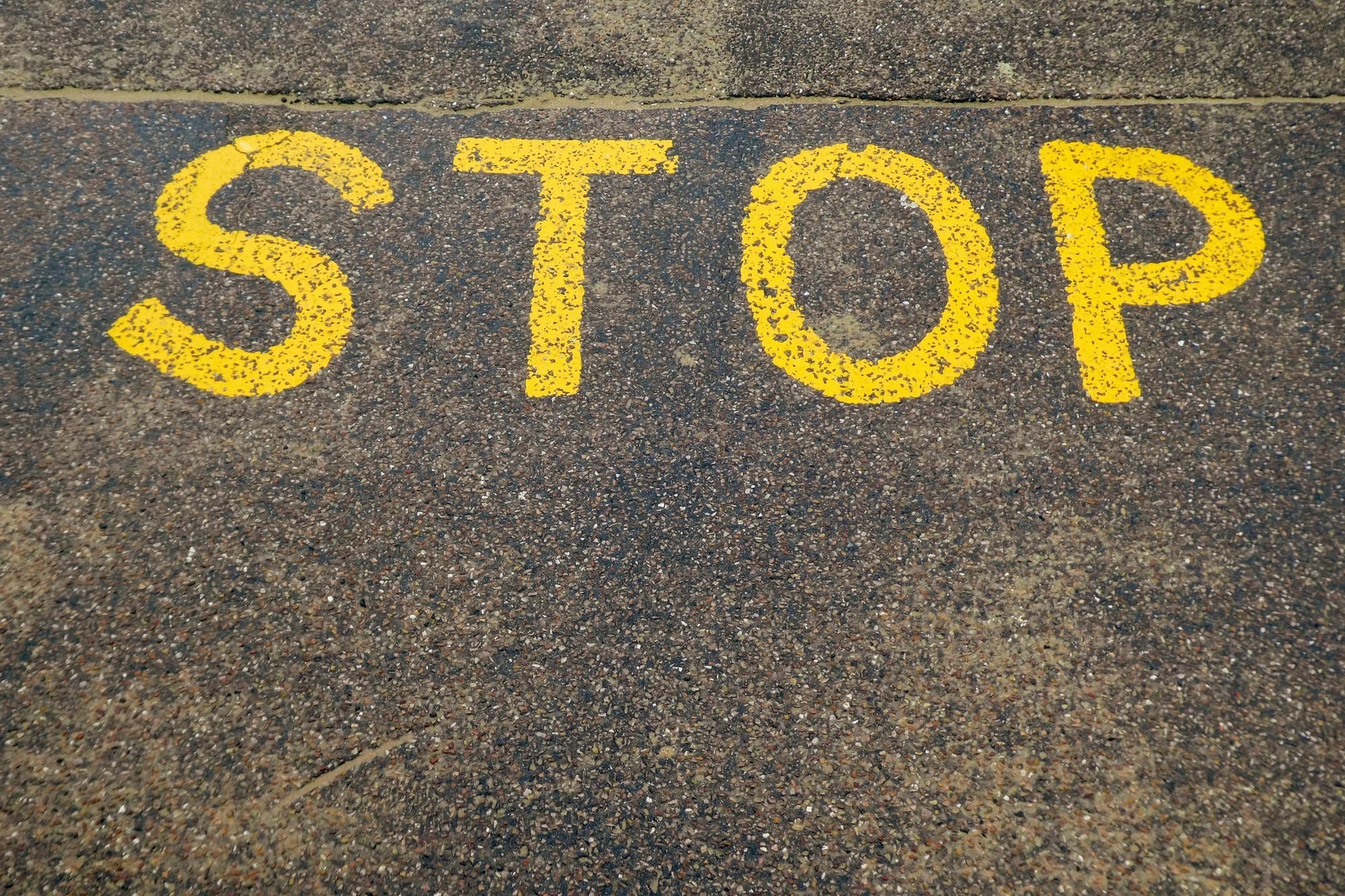Essentials
Podcasting Essentials
Related articles:
Sometimes podcasters find themselves on the receiving end of a demand that they change the name of their podcast because someone else has a podcast with the same name. This is sometimes called a “cease and desist.” How can one know who has the superior rights to use the name? What should a podcaster do when they see a trademark dispute on the horizon?
First things first. Is it the same name or a similar name? The more different your name is from their name, the weaker their case is that they can prevent you from using your name. In fact, unless they can argue that you’re trying to spoof their show and confuse their potential audience into accidentally listening to your show when the listener really meant to listen to theirs by using a very confusingly similar name, the names are going to need to be pretty darn exactly the same for them to have a claim.
If it is the same name, the next step is to see whether the other person has registered a trademark for the name of their podcast in the United States and, if so, when they obtained the trademark. If you get a cease and desist claiming infringement, it’s a good idea to see if that show actually has a registered trademark on the name because … they might not. Believe it or not, even if they claim to have a registered trademark, they might just be trying to scare you. (But more on that later!) In the United States, you can check to see using the Trademark Electronic Search System (TESS). It's actually a pretty easy database to use, so don’t be scared.
There are two potential outcomes from your TESS search - you either find it or you don’t. Let’s assume for now that you did not file a trademark to register the name yourself (more on why you should have done so in this other article I wrote). If from your search you find out they have registered the name, check out the trademark filing date. Was the filing date before or after you started publishing your show under the same name? If it was before, they are going to have a pretty strong argument that they have the right to prevent you from having a podcast with the same name, especially if their trademark is registered in class 9 or class 41. You should probably consider changing the name of your show or negotiating with the show claiming you are wrongfully using the name to acquire the rights from them to keep the name.
If the other show has a registered trademark on the name, but the filing date was after you started publishing the show, or they don’t have a registered trademark, who has the superior rights to use the name (and whether one show can prevent the other from using the name going forward), is a little murkier. This is because somebody can have what are called common law rights in a trademark that are separate from the federally registered statutory rights in a trademark. If you see a filing date in TESS, that filing date doesn't mean that they couldn't have had common law rights in the name earlier than that date, but it means that they definitely have those rights as of that date.
In these cases, it will likely come down to which of you started publishing your podcast under that name first. If the trademark is registered after the date when you first started using the trademark publicly (e.g. by publishing a podcast with that name), you likely have common law trademark rights that supersede the federal statutory trademark registration that they filled. Essentially, you could be in a position of arguing that they're actually infringing on your trademark because their trademark came later than yours.
Of course, they may respond by saying that they think they have common law rights that are earlier than your rights and they may point to other ways that they were publicly using the trademark that started before you started publishing your podcast (for example, as the name of their blog, business, book, etc.).
Now you’re in this back and forth as to who really started first using this name in this space. So who has superior rights on it? It can sometimes depend on how well known the name is outside of podcasting. Let's say you're Nike and let's say someone else has already started a podcast about apparel and shoes using the Nike name–even before you’ve started your show. You might be able to argue that that's actually an infringement of your rights because Other Nike is piggybacking off of your established brand. Even though Other Nike started in podcasting under that name before you did, the Nike brand name is very well known, with well established common law trademark rights (and, if you’re Nike, many federally registered trademarks, also!). Potentially you-as-Nike could have a legal claim and be able to seize your name from them for trademark squatting, even if you did not have a podcast with that same name that pre-dated theirs and even if you did not have a first-filled federal trademark registration.
What are a podcaster’s options once they’ve received a cease and desist or a demand to change the name of their podcast?
If you’re in a situation where you think you may have superior rights–for instance, you might not have a trademark on your name, but you did start your podcast before the other person–you have a couple of options. Firstly, you can decide to fight it by writing back and saying that you’re not going to change your name, because you believe your rights are superior, and laying out the case as to why that’s so.
You can also decide, if you're willing to walk away or you think that your audience would follow you to somewhere else, that if they want the name, that’s fine–but they’ll have to pay for it, and begin a negotiation on price or conditions. If you were already thinking of retiring from the podcasting game or looking for an exit, this negotiation could even be a matter of purchasing not just the name, but your audience, as well. If you created it on your own and it is your original work, your podcast and your feed is an intellectual property asset that you own and you created, so you can sell as much of it as you want.
Your last choice, which is not really a good one for anyone, is to get into a legal dispute as to who owns the name. This can take the form of agreeing with the other person to go to mediation or arbitration, or it can mean going to court (or “litigation”). You should likely try to avoid going to litigation however possible - trademark disputes are rarely, if ever, as satisfying as we want them to be. It’s very unlikely that you're going to be made whole because people in the United States are generally responsible for paying for their own attorneys’ fees and costs even if they win. Representing yourself can be expensive, difficult and time consuming. Spending a lot of time and paying a high cost in order to prove that you were right all along really sucks. It’s also important to remember that the overwhelming majority of cases settle outside of court, before a case goes to trial. This means that you may go through a lengthy legal process just to still end up with the two of you sitting in a room deciding between you how you should compromise anyway. Why not do that in the first place and save yourselves all that time and money? Check out this article for a basic overview on what to expect if you get sued for trademark infringement and this article for a basic overview on how to bring a trademark infringement lawsuit.
It’s worth noting that just because somebody has a trademark in the US, or is well-known in the US, it doesn't mean that they're going to have a trademark or rights that are superior internationally. You could have a situation where, domestically, you’re able to get a trademark but internationally, you cannot.
Can people use cease and desists as bullying tactics to try and secure names?
Whether it’s bullying or misrepresenting how superior their rights are, this absolutely happens. Cease and desists and the threat of litigation are scary things. I’ve heard of cases where someone is wrongfully put in a position where they feel they have no choice but to change their name, even if the law is on their side.
Let’s look at a hypothetical example. Glow Podcast Network sends a cease and desist to the Great Lawyers Organization (“GLO”), saying that their podcast “GLO Get ‘Em” is confusing listeners into thinking that GLO Get ‘Em is a Glow Podcast Network show, and that sometimes listeners who are trying to listen to the shows made by Glow Podcast Network accidentally listen to GLO Get ‘Em episodes instead. Glow Podcast Network says it has superior rights in the name “GLOW” in podcasting and wants GLO to change the name of the GLO Get ‘Em podcast. GLO is considering doing just that, but then clever Caitlin, GLO’s incredible Director of Marketing, remembers reading this article and reminds GLO that the more generic a name is, the less likely you are to have trademark protection over it (and the more likely it is that someone has a similar name!). (I know! Crazy how Caitlin knew something that all of the fine folks at the Great Lawyers Organization didn’t think of! See what I did there?) Since “glow” is a very common word, it’s pretty hard to assert outright trademark protection over that one word in all of podcasting, even with a trademark. Additionally, while it hasn’t been totally litigated out in podcasting, there’s a precedent for having multiple pieces of media use the same name–we see this happen all the time in books and movies. While it might be a challenge to market, that doesn’t make it a trademark infringement.
Okay, but why are they doing this in the first place?
One of the reasons why we might see bigger companies and podcasting networks send out these cease and desist letters is because they don't want to lose listeners. Many podcasts monetize based on how many monthly listeners they're getting. If there are six different versions of a show name out there, that’s six different places their audience might accidentally listen instead of listening to their show.
All that being said, individuals and companies with common law and federally registered trademarks themselves are also in a really tough position. In order to maintain your trademark rights and not be vulnerable to someone claiming that you waived your trademark rights, you have an obligation to try to prevent other people from using your marks. When it comes to trademark, in order to own it - and keep owning it, you’ve got to work to protect it. Because of this, individuals and companies are sometimes in a position of actually being required to send out a cease and desist in order to protect their rights, especially if they’re alerted to infringement by an outside party. Often the individual or company is not actually attempting to seize the name from you, but just protect their own intellectual property. In these cases, a good way to try to resolve this dispute can be to negotiate what is a called a trademark coexistence agreement. Check out this article for some tips on how you might go about negotiating one of those.
Interested in bringing your podcast over to Simplecast? Learn more here.

